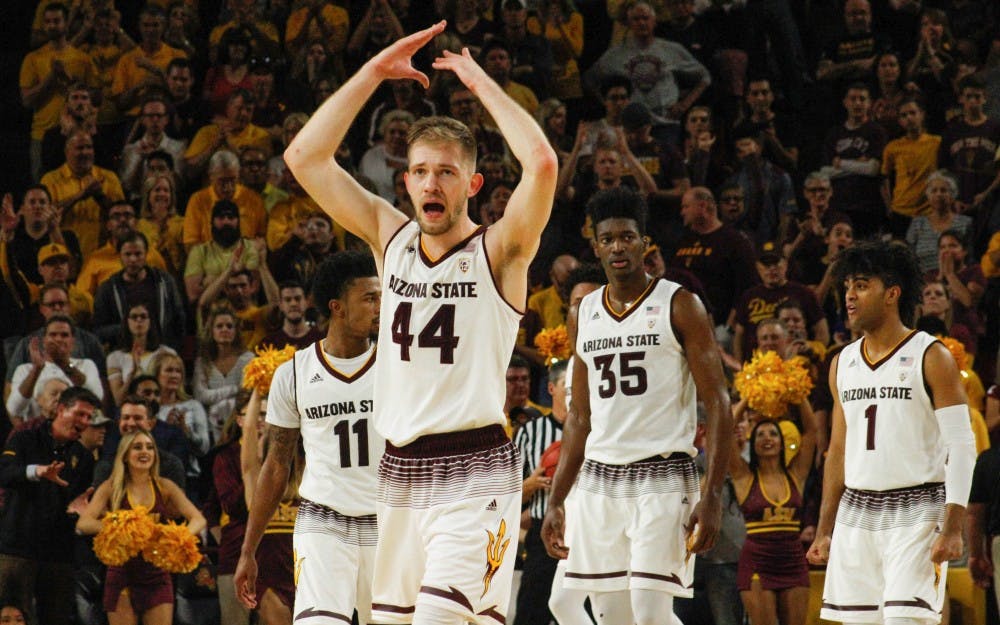Until now, every high school basketball player who has gone on to play in the NBA since 2006 — when the one-and-done rule was established — has played in college.
As the rule currently stands, a player can legally go straight to the G-League out of high school, and subsequently the NBA, without ever playing in college.
Despite this loophole in the system, which recruit Darius Bazley has recently taken advantage of, every player has had to play at least one year at the college of their choice before they become eligible for the NBA draft.
With Bazley’s decision to go straight from high school to the NBA’s G-League, he has made history and potentially started a trend that could impact less reputable basketball schools, like ASU.
Nevertheless, students should want to go to college because they want to, not because they are at the will of the NCAA.
Top players bypassing college basketball may not impact larger schools like Duke University or University of Kansas because they have such notable recruiting reputations and storied histories.
Upstart schools like ASU, however, could be hurt in the long-run if their own recruits see Bazley succeed and realize they can make money right out of high school as opposed to stalling that process for a year while in college.
Because ASU gained national attention this season, it has allowed head coach Bobby Hurley to recruit more top players for future classes and set the team up for recruiting success in the future.
“The NBA is paying attention to (players like Bazley),” said Paola Boivin, professor of practice in the Cronkite News Sports Bureau. “The NCAA could lose some really good players because of this opportunity. It’s a legal opportunity that they really haven’t had before.”
While the idea of more and more players skipping college basketball altogether is relatively new, it sheds more light on the legitimacy of the one-and-done rule and whether it even belongs in today’s game anymore.
Bazley could open the door for more players to avoid the archaic system and better their lives and careers at an earlier age.
“I think the whole ‘one-and-done’ thing is a fiasco,” Boivin said. “We know (a lot) of these guys aren’t going to college because they’re trying to better their academic world, and I’m not saying that to insult them. It’s kind of a farce that (the NCAA is) forcing them to go.”
One downside for a player who decides to go straight to the G-League would be his exposure. Most G-League players don’t get a lot of attention because most college draft picks make their respective teams right away.
The NCAA certainly has its flaws, but there is no denying the amount of exposure top players receive by playing college basketball, no matter how long they play.
A shift like this would damage the NCAA, as well, because it would lessen the pool of elite players and put even more pressure on top schools to maintain their reputations and continue recruiting the best players year in and year out.
In the end, the move could potentially be what’s best for a lot of players, and recruits shouldn’t shy away from taking advantage of it like Bazley has.
ASU, for example, may feel some of the most after-effects, but the players’ well-being and successes are more important than any single university’s revenue.
“These are people who have rights, and their rights should include whether they want to go to the NBA out of high school or whether they want to go to college,” Boivin said. “There are great benefits to going to college, but it’s a basic human right that someone should be able to make a decision about where they want to play or work.”
Reach the columnist at Steven.Slobodzian@asu.edu or follow @PSlobodzianASU on Twitter.
Like The State Press on Facebook and follow @statepress on Twitter.
Editor’s note: The opinions presented in this column are the author’s and do not imply any endorsement from The State Press or its editors.
Want to join the conversation? Send an email to opiniondesk.statepress@gmail.com. Keep letters under 500 words and be sure to include your university affiliation. Anonymity will not be granted.




